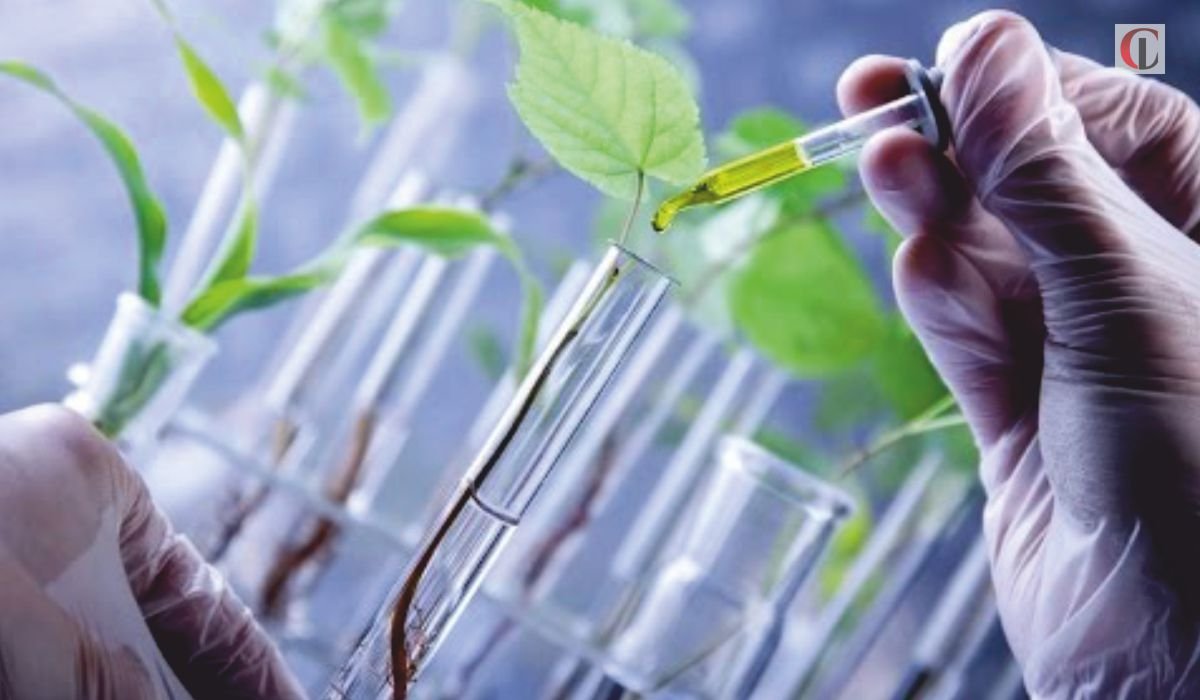Biotechnology is a the exploration and development of various biological processes to achieve mainly industrial and various other purposes cultivation of the plants, and improvements through breeding programs. The processes also employs artificial selection and hybridization which emphases its functionality. At present, the modern usage also includes genetic engineering as well as cell and tissue culture technologies.
In earlier days biotechnology process was initiated by farmers who developed improved species of plants and animals by cross-fertilizing or cross-breeding. In recent years, biotechnology has expanded its core functionality widely which now focuses on sophistication, scope, and applicability.
A well-known and author and writer is vague and can be unsubstantial, for example, Clayton Christensen share his views as, “There are other dimensions of biotechnology. If you think of biotechnology like the Internet, it’s not a category – it’s an infrastructure that can be deployed to sustain or disrupt. In healthcare, the most complex problems at the high end have to be dealt with in a problem-solving mode by the best, most experienced physicians you can find.”
Biotechnology is immensely contributing towards agriculture which enhances its functionality to the next level. Agriculture aspects have extremely changed with biotechnology functions and increase readability of the process.
What is Agriculture Biotechnology?
Agricultural Biotechnology is also known as Agritech. It is an area of agricultural science involving the use of scientific tools and techniques. There are several techniques used in agriculture biotechnology such as Genetic Engineering, Molecular Markers, Molecular Diagnostics, Vaccines, and tissue culture. And it also modifies the living organisms like Plants, Animals, and Microorganisms.
In recent times, Crop biotechnology has been developed its functionality in agriculture and is also one of the main aspects of agriculture biotechnology. Its desired qualities are exported from a particular species of Crop to an entirely different species.
How is Agriculture Biotechnology Used?
Genetic Engineering: The term is derived from scientific research provides information about how to move genes from one organism to another. This is known as genetic engineering (GE) or genetic modification (GM). Genetic engineering includes the transfer of useful characteristics by inserting DNA of Plants, animal or microorganism from another organism to another.
Molecular Diagnostics: Molecular diagnostics significantly detect genes or gene products that are very precise and specific. Molecular diagnostics is the method used in agriculture to more accurately diagnose crop/livestock diseases.
Tissue Culture: Tissue culture is the process of regeneration of plants from the disease-free plant. This technique allows reproduction of disease-free planting material for crops.
Unified Methods Used for Corp Modification
Traditional Breeding: Traditional breeding method has been used for centuries to improve crop quality and quantity. The crossbreeding describes the combination of two compatible species to create a new variety with the desired traits. The crossbreeding can be only utilized within the same or closely related species.
Polyploidy: Polyploidy is the method describes which can be induced to modify the number of chromosomes in a crop in order to influence its fertility or size. Through naturally or with the use of chemicals, the number of chromosomes can change. The process results in the fertility changes in modification within the crop.
Protoplast Fusion: Protoplast fusion is also known as Somatic fusion. It is a type of genetic modification in plants by which two distinct species of plants. In this method, it includes joining of cells or cell components to transfer traits between species.
Transgenics: Transgenics is the method which involves the insertion of one piece of DNA into another organism’s DNA. It works in order to introduce a new gene into the original organism. This addition of genes into an organism’s genetic material creates a new variety with desired qualities.
Impact of Agriculture Biotechnology on Economy and Social Life
The technology used in agricultural productivity improved its usability and functionality with some major factors such as combine harvesters, chemical fertilizers, and the green revolution. Like every technology, agricultural biotechnology will also have its major impact on economic and social.
In agriculture, crops using biotechnologies have improved its quality and also been used safely with benefits. The technology influences the whole process by the reduction of pesticide use. At present agricultural biotechnology, one of the factors that influence the health and welfare of the farmers and other citizens in the developing world.
Influence of Agriculture Biotechnology in the Future
The aim of agricultural biotechnology is to present the functionality of the applications used in agriculture biotechnology. The applications are eagerly awaited to increase the productivity of crops, primarily by reducing the costs of production by decreasing the needs for inputs of pesticides. The process is mostly used in crops grown in temperate zones. The application of agricultural biotechnology can improve the quality of life by developing new strains of plants that give higher crops. The crops can be grown in a wider range of environments which give better rotations to conserve natural resources. It also provides more nutritious harvested products that keep much longer in storage and transport, and continue low-cost food supplies to consumers.
According to Crop Science, the company with credible authority on the progress and future implications of Agricultural biotechnology states that, “Farming is evolving in the 21st century with the development and use of biotechnology crops. Scientists and agronomists work in the lab and greenhouse to come up with genes that improve crop yield and make corn, soybean, cotton and canola plants more resistant to insects and more tolerant to herbicides, drought, and stress.”
The biotechnology and its process is the evidence of the contributions towards rural development around the world. It serves as the source of inspiration for emerging nations to complement existing practices with agricultural biotechnology.





